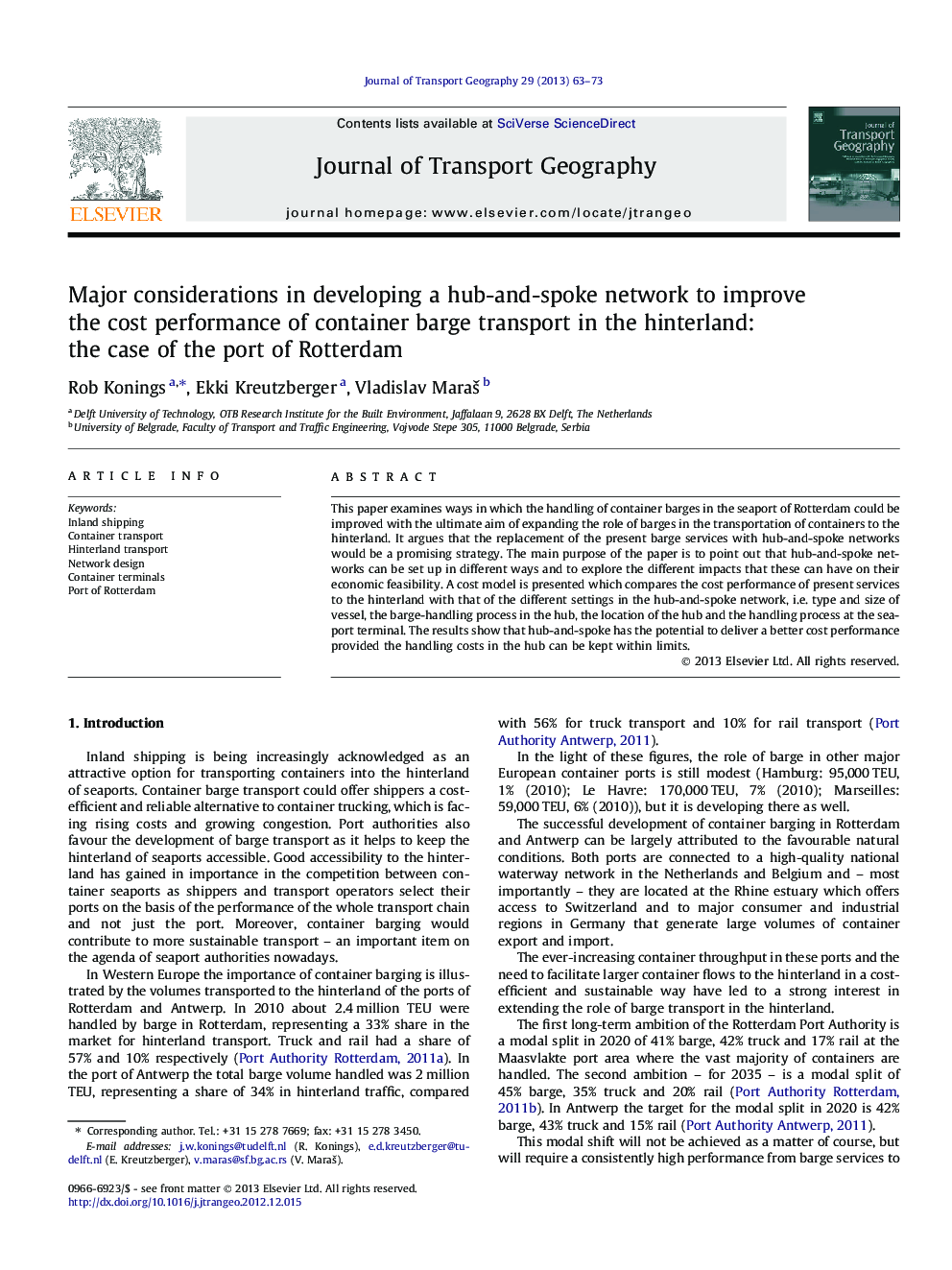| Article ID | Journal | Published Year | Pages | File Type |
|---|---|---|---|---|
| 1059229 | Journal of Transport Geography | 2013 | 11 Pages |
This paper examines ways in which the handling of container barges in the seaport of Rotterdam could be improved with the ultimate aim of expanding the role of barges in the transportation of containers to the hinterland. It argues that the replacement of the present barge services with hub-and-spoke networks would be a promising strategy. The main purpose of the paper is to point out that hub-and-spoke networks can be set up in different ways and to explore the different impacts that these can have on their economic feasibility. A cost model is presented which compares the cost performance of present services to the hinterland with that of the different settings in the hub-and-spoke network, i.e. type and size of vessel, the barge-handling process in the hub, the location of the hub and the handling process at the seaport terminal. The results show that hub-and-spoke has the potential to deliver a better cost performance provided the handling costs in the hub can be kept within limits.
► Hub-and-spoke services can contribute to improving container barging in the hinterland. ► Barge operators and terminal operators may benefit from hub-and-spoke services. ► The performance of the hub is critical for the feasibility of the concept. ► A successful concept requires large-scale implementation.
